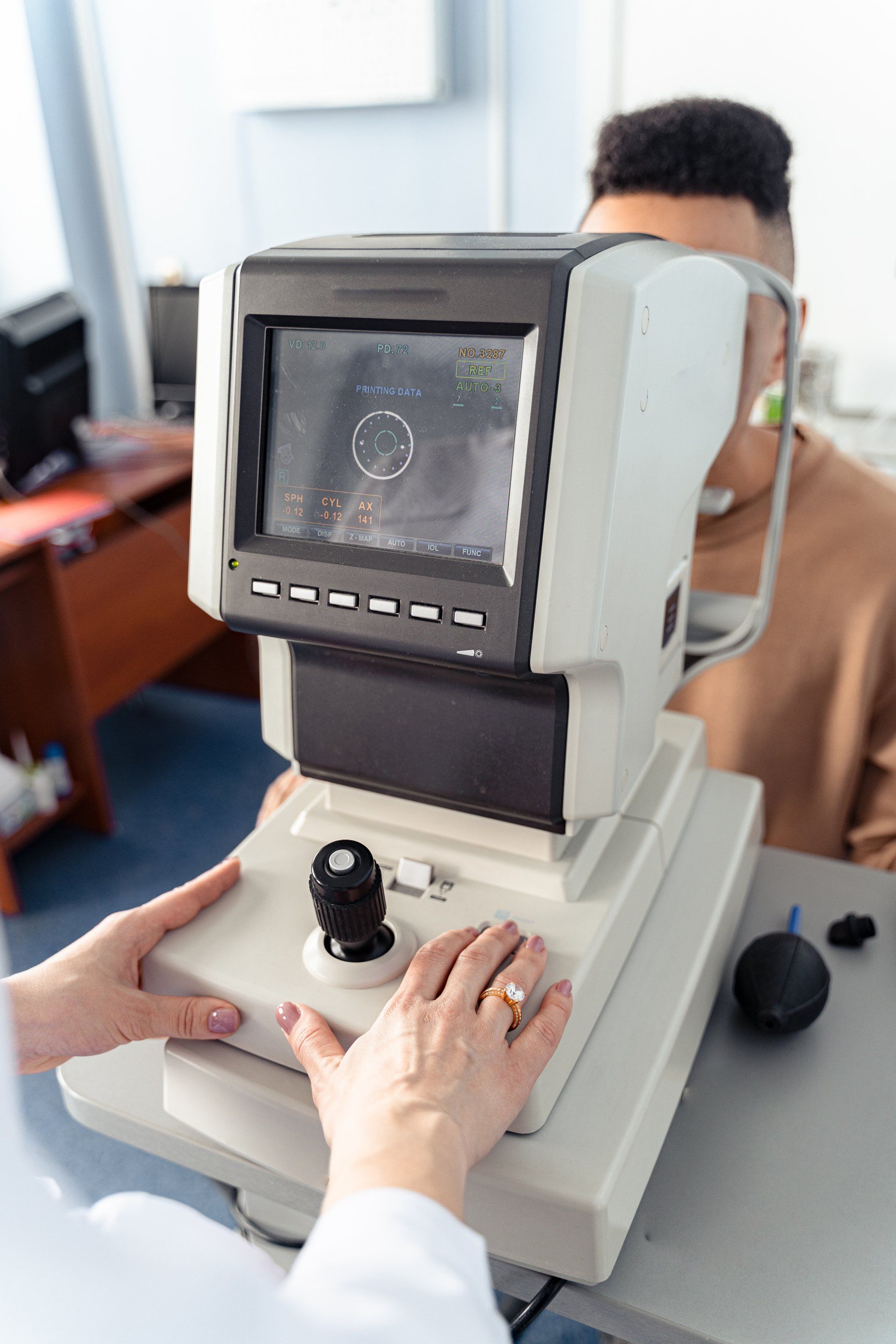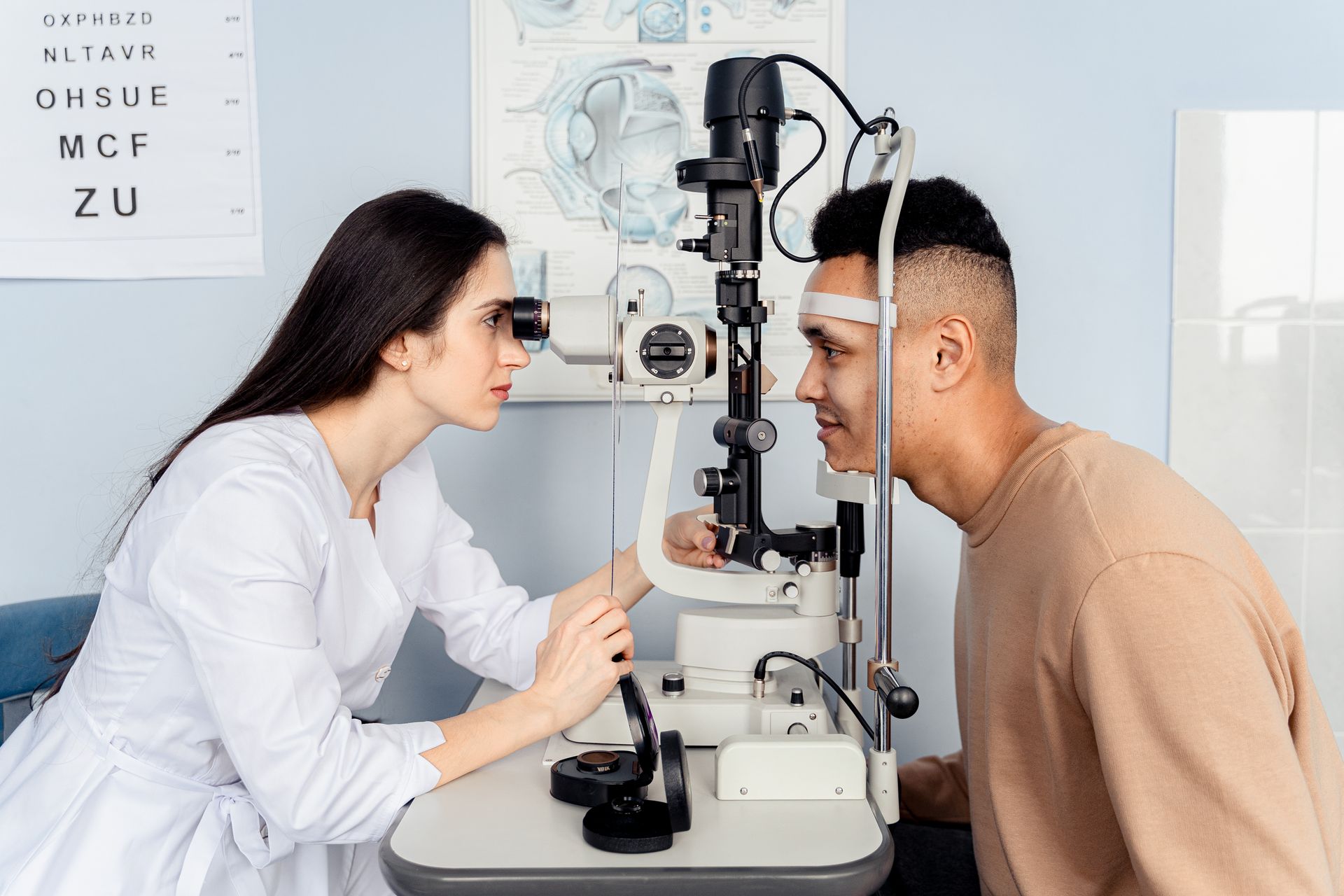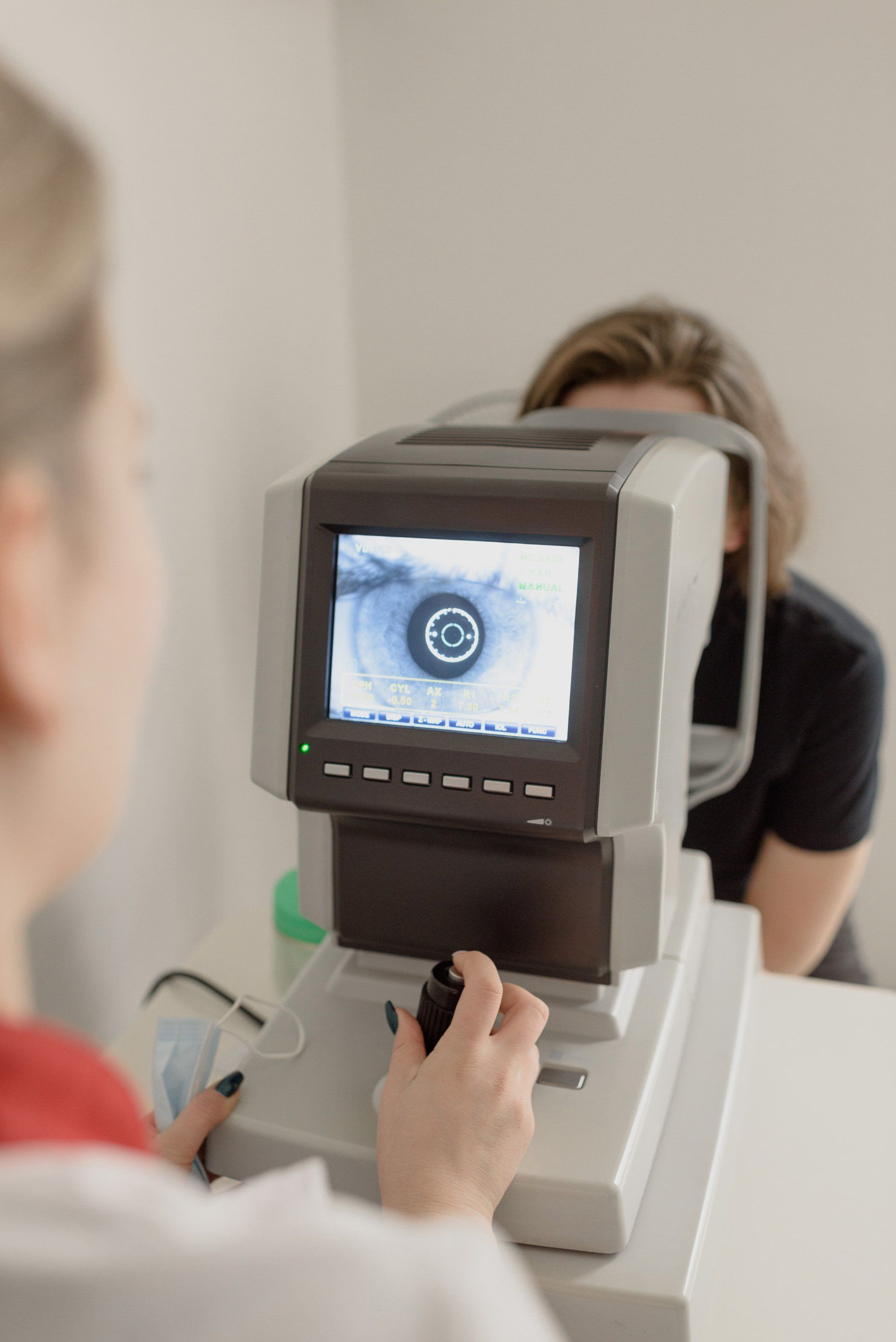Visit Our Optometrist in Ulladulla
Regular Check-Ups & Assessment
If you're concerned about changes in your eyesight or want a regular check-up, we're here to provide the services you need!
At Eye Appeal, we provide comprehensive eye examinations and other professional optometry services. During your visit, our optometrists will assess your eyesight and check for any loss in vision or signs of glaucoma and other eye-related illnesses. We can then provide treatment advice or prescribe a set of lenses to help offset any vision loss.
To book an appointment in Ulladulla, call us today on
(02) 4455 2133.
How An Optometrist Can Help
An optometrist can provide a great deal of information about your eyesight. Through undertaking an assessment, they can:
- Check the health of your eyes
- Evaluate your vision & visual acuity
- Screen for glaucoma, cataracts, macular degeneration & other eye diseases
- Identify colour blindness
- Detect & treat eye coordination & focusing disorders
- Provide advice on occupational eye protection
- Prescribe glasses, contact lenses and eye drops
- Undertake a prescription review/adjustment
And more. By having a regular check-up with an optometrist, you can ensure that changes in your vision are detected early and treated accordingly.
As We Age, Our Eyesight Changes
As we get older, our eyesight naturally begins to change. This can be caused by an array of factors, including eye diseases, ageing of the lens, and changes in the eye's ability to focus.
The most common vision problems that occur as we get older are presbyopia, cataracts and glaucoma. These age-related vision problems can be corrected or delayed, depending on the severity and how early they are caught. Prescription glasses and contact lenses will often help improve vision, while surgical procedures may relieve symptoms in more severe cases.
Visiting an optometrist regularly as you age will improve the chances that any changes to your eyesight will be detected early. Regular check-ups are even more critical if you have diabetes or high blood pressure, which can place additional strain on the eyes. Our optometrists will talk you through any changes that may need to be monitored and provide advice on how best to preserve your vision
Get in touch with Eye Appeal today for more information or to book an appointment.








